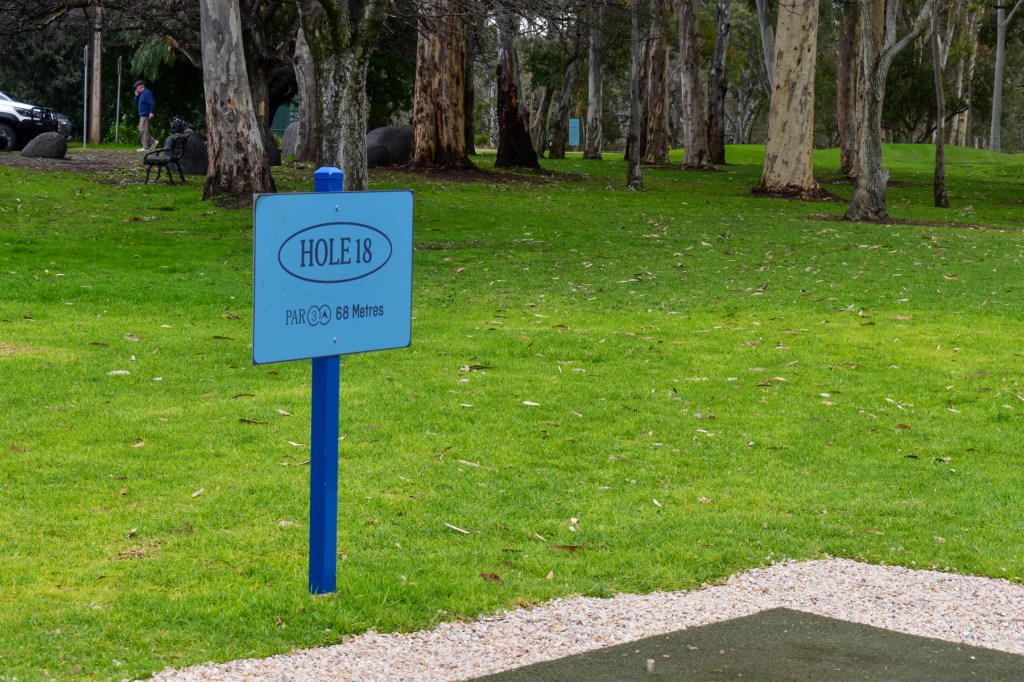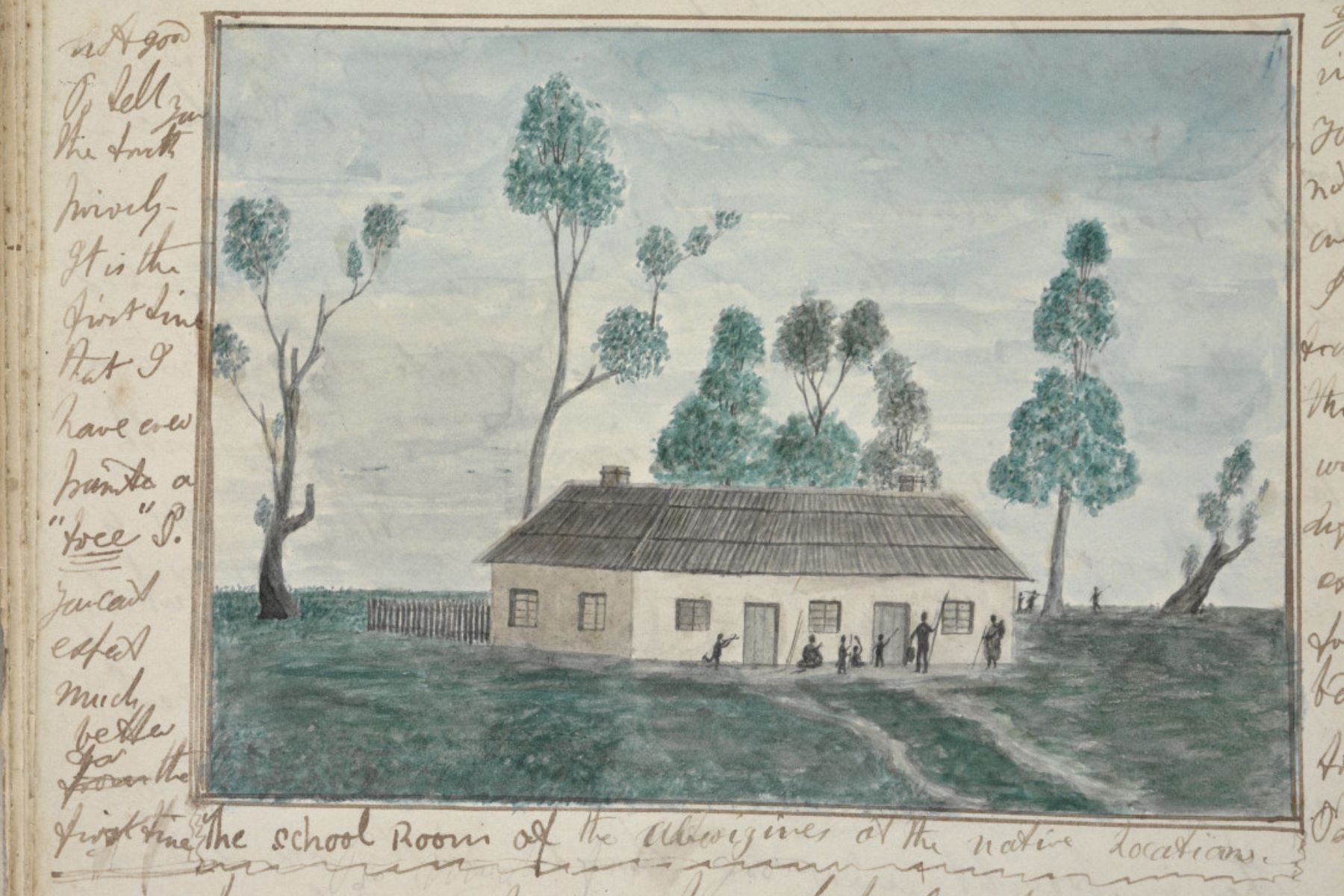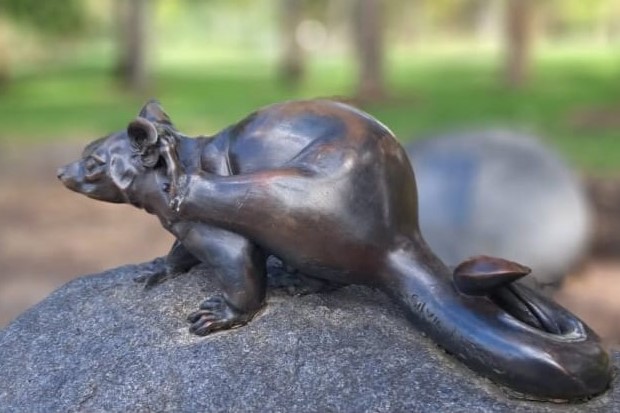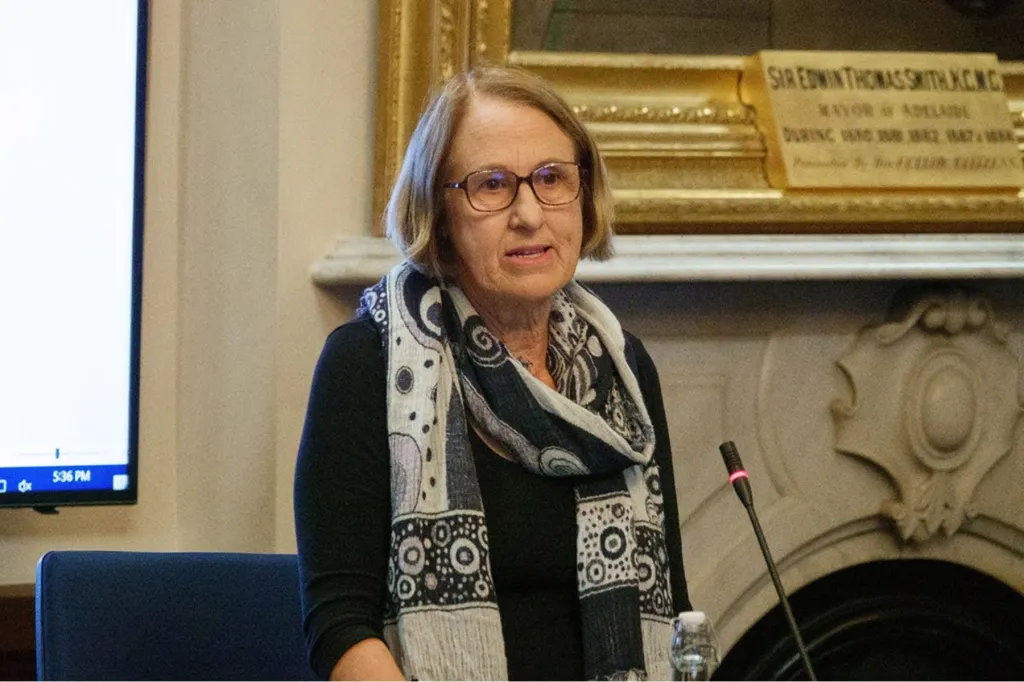Fears for ‘sacred site’ amid LIV Golf course plans to churn up park lands
Major concerns have been raised about disturbing ancestral remains for the North Adelaide golf course redevelopment, as one city councillor labels the government’s consultation “tokenistic”.

The state government took ownership of the North Adelaide golf course from the Adelaide City Council last month to redevelop it in time for Liv Golf 2028.
While the special legislation that passed parliament allowed the government to bypass some planning consultation protections, it’s required to consult with the Aboriginal community under the Aboriginal Heritage Act – a process currently underway and under fire.
The site, Possum Park / Pirltawardli (Park 1) and its surrounds, is a significant site for the Kaurna people, who are concerned that the development will disrupt burial sites.
Kaurna elder and traditional owner Tim Agius told InDaily it would be likely ancestral remains would be found in the area.
“It doesn’t matter where you dig, it needs to be assessed because you’re more likely to be surprised if you don’t find ancestral remains because of the density of the population,” Agius said.
Concerns about the park lands burial grounds affected by golf course landscaping have been raised for decades.
A 1998 report prepared for the council by the Kaurna Community Heritage Committee noted that “works on the banks in this area turn up the bones of Aboriginal graves, indicating that the site has not been completely destroyed by landscaping”.

The 18-hole championship-standard golf course, driving range and clubhouse would take over Pirltawardli and its neighbouring Park 27A John Brown Park, requiring ground-disturbing works like large-scale excavation, digging potentially 5 metres deep.
According to the Attorney-General Department’s consultation information pack, “if Aboriginal remains are encountered and cannot be avoided by Project works, they will be recovered by a qualified archaeologist in consultation with Traditional Owners”.
You might like
Within the Aboriginal community, there are different views on how remains should be handled and preserved if they are found, but the overall sentiment is that ancestral remains should not be disturbed.
Agius said the topic is distressing for traditional owners and a cause of recurring trauma after actions at the Riverlea housing development and the new Women’s and Children’s Hospital.
Agius said if the state government want to build a world-class golf course, “we don’t care, but not at the expense of our people”.
“As long as they don’t dig up our ancestors, and that there’s an acknowledgement to that place as being significant to Kaurna people, I’m sure we can work something out but no, we will not support the digging up of our people any longer, whether it’s here or anywhere else.”
The park lands flagged for the golf course redevelopment have a storied history, as a site of a missionary-run school, the first place the Kaurna language was recorded, and, Agius said, as a place of incarceration for Kaurna people.
“If that site is going to be developed, without disturbing our ancestral remains, there now also needs to be clear acknowledgement about what that site is, because at the moment, it acknowledges the Lutheran Brethren and it doesn’t acknowledge the history around truth telling, what happened at that place? Our people were incarcerated,” he said.

South of War Memorial Drive, the section of the golf course near the Weir was used to concentrate the local Aboriginal population in one place, where they were taught European language and culture by missionaries.
“There were camp sites absolutely everywhere, because it was a significant area, and so because our people were rounded up, well our other people visiting from our south or north, gravitated to that area as a camping site,” Agius said.
“That’s where our people were incarcerated; they weren’t allowed to leave.”

The stretch of Karrawirra Pari (River Torrens) between Park 1 and Park 27 (Tulya Wodli) is also culturally significant, as Agius said it “played an important role in the survival of our people for many years”.
Agius says the significance of the site cannot be understated.
“It’s our church, it’s like the church you got near Adelaide Oval. It’s our temple. It’s our sacred site,” he said.
Stay informed, daily
“This is the only place we have left on our country that we can go to.
“I go down there often, just sit and, you know, just take it all in, because this is where you can sort of connect because that’s where our people were.
“You can’t do it anywhere else. So that’s what it means to us.”
Golf course consultation labelled “tokenistic”

The Lord Mayor will write a letter to the state government asking them to consider extending the existing consultation with the Aboriginal community by five weeks.
The Adelaide City Council voted in favour of this at Tuesday night’s meeting, led by councillor Janet Giles.
“The way that Aboriginal people and the Kaurna traditional owners are being consulted is, in my view, tokenistic, and it’s also culturally inappropriate,” Giles said at the meeting.
“I know that we don’t have a role in this, however, we can have a role in requesting to the Premier that the process of consultation under the Aboriginal Heritage Act is done in a more sensitive, more culturally appropriate way than it is currently.”
The letter will also request an additional in-person Aboriginal Community Consultation meeting hosted in the City of Adelaide.
According to the council agenda documents, only one Aboriginal community consultation was scheduled for July 19 at the Mawson Lakes Hotel.
Agius said the meeting was attended by six or seven people, despite the Kaurna Yerta Aboriginal Corporation having some 400 members.
Janet said the consultation documents on the YourSay website are “very difficult to understand, even for people who’ve got their heads around the legislation and processes”.
A state government spokesperson for Aboriginal Affairs and Reconciliation told InDaily it ensures Traditional Owners and interested Aboriginal parties are “fully informed”.
“As is the case with all applications received under the Aboriginal Heritage Act 1988, Aboriginal Affairs and Reconciliation (AAR) undertakes to ensure that Traditional Owners and other interested Aboriginal parties are fully informed of what is being proposed and given every opportunity to provide their input,” the spokesperson said.
“AAR’s consultation process is comprehensive and includes community meetings, online submissions, and options for one-on-one verbal submissions.
“This approach ensures community members have every opportunity to fully understand what is being proposed, and importantly, that their views are accurately and completely represented in the report for consideration and decision.
“AAR’s consultation approach is built on long-standing relationships with Aboriginal community members, demonstrating acute awareness of the sensitivities often involved in these applications.”
Currently, no plans or details of what the golf course redevelopment will look like have been revealed.
Submissions from members of the Aboriginal community can be made via the YourSay website until July 31.









